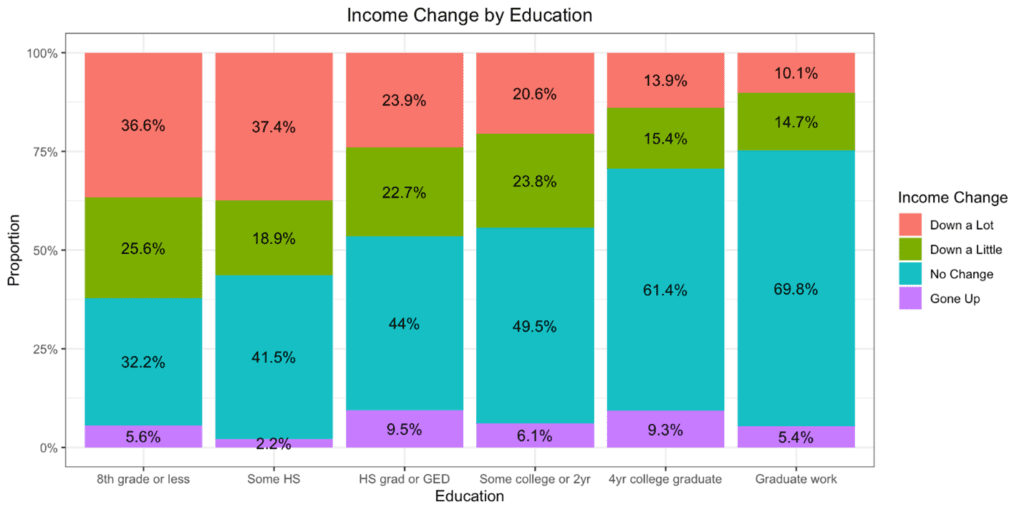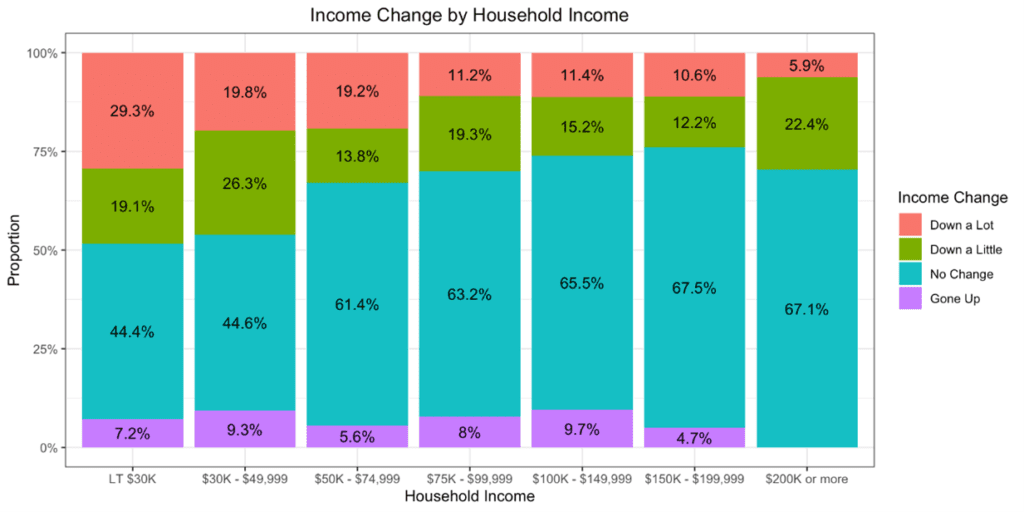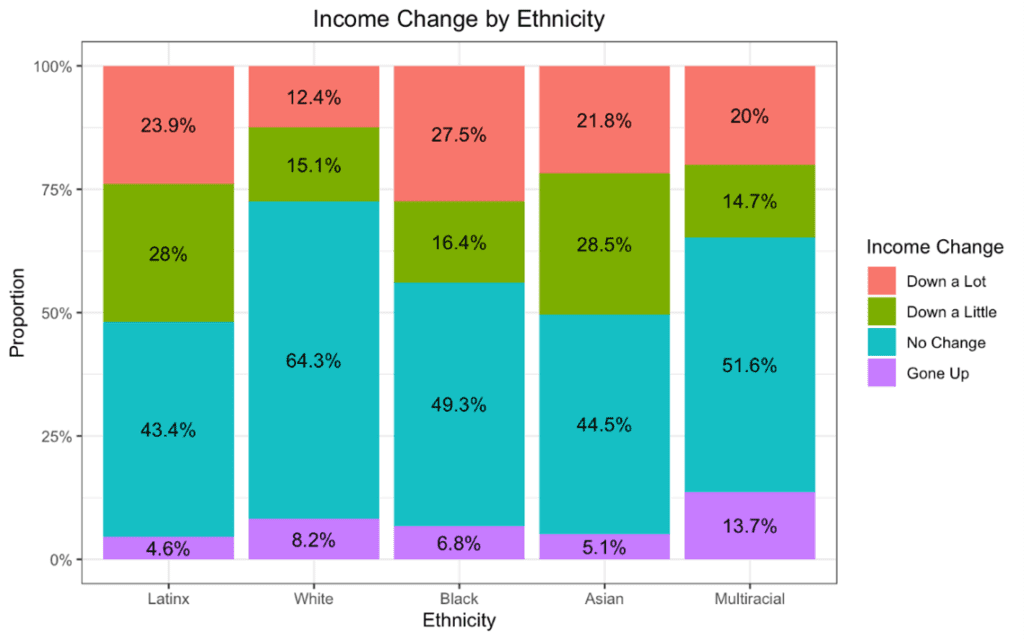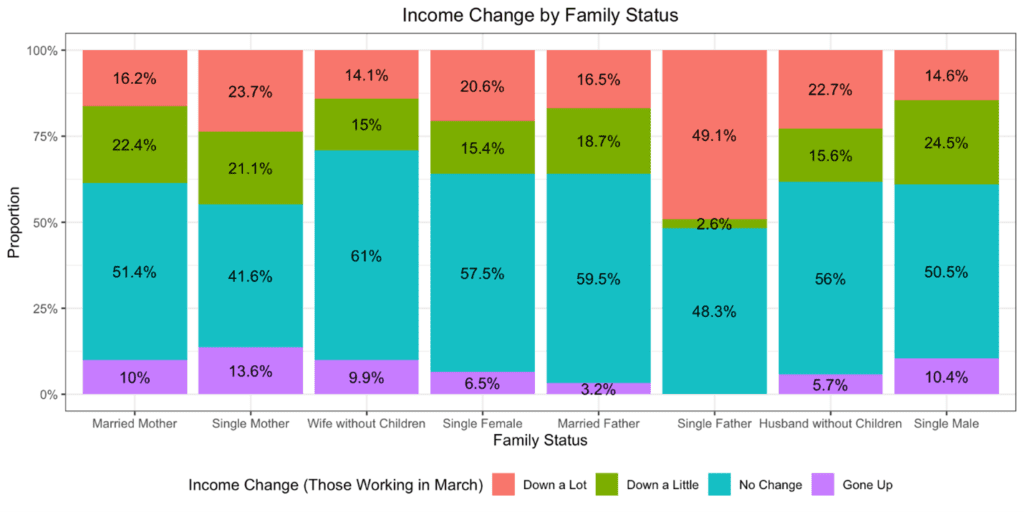In our third report drawn from the Living in Boston During COVID-19 survey, we have focused on the pandemic’s economic impact among Bostonians. We documented the substantial loss of jobs and income resulting from the pandemic. At the same time, we found striking disparities in these adverse economic effects between communities and in relation to race and ethnicity, education and income, and family status. The patterning of these effects indicates that the pandemic has multiplied rather than reduced preexisting inequities. In today’s data story, we show how the pandemic’s economic impact reinforced existing inequities by education and income, race and ethnicity, and family status.
The likelihood of experiencing income loss as a result of the pandemic varied markedly with sociodemographic characteristics. Those with less education and lower household income were most vulnerable to income loss, but race and ethnicity, and family status also made a difference.
Income loss was much more common among those with less education. Almost two-thirds of those with no more than a grade school education lost income during the first months of the pandemic (and more than half of them lost “a lot” of income), compared to less than one-third of those with a college degree.

About half of those with household incomes under $30,000 lost income during the pandemic, but likelihood of income loss declined to just one-quarter of those in the $150,000 and $199,999 category. The likelihood of income loss rose slightly among those with household income of $200,000 or more, but most rated that loss as “a little” rather than “a lot.”

While fewer than one in three white, non-Hispanic respondents reported any income loss as a result of the pandemic, about half of those who identified as Latinx, Black, or Asian did so. Latinx and Asian respondents were also least likely to have experienced any income gain as a result of pandemic.

The likelihood of experiencing personal income loss during the pandemic for those who had been working in March also varied with family status. Single parents—75 percent of whom were women–were most vulnerable: about half experienced some income loss. Married women without children were least likely to report income loss (three in ten), while about four in ten of other groups experienced some income loss.

The content of this post is drawn from the Living in Boston during COVID-19 survey conducted by the Center for Survey Research at UMass Boston and the Boston Area Research Initiative at Northeastern University, in collaboration with the Boston Public Health Commission. It was funded by the National Science Foundation’s Human-Environment and Geographical Sciences (HEGS) program through a grant y for rapid-response research (RAPID; Award #2032384). The results presented here were part of a longer report on “Economic Strains.”

